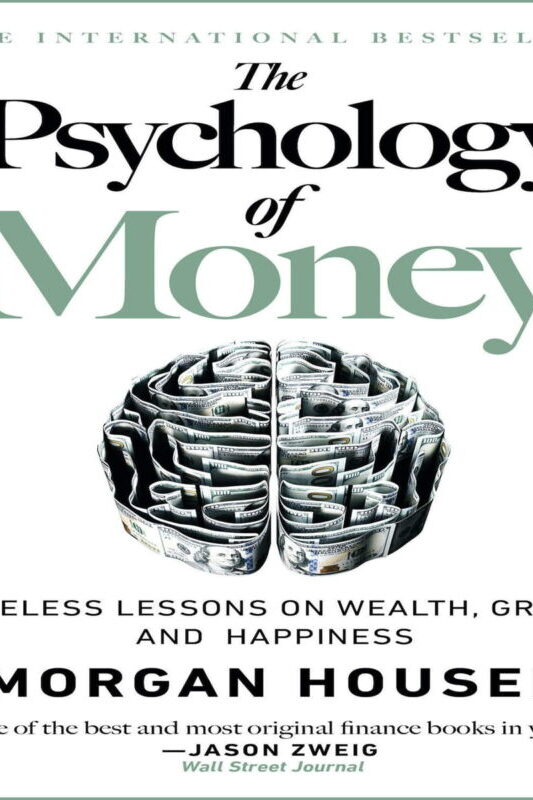Adapting Financial Strategies for an Unpredictable World
Embracing change, understanding compounding, questioning historical data, adopting flexible investment strategies, and preparing for economic unpredictability for financial success.
Subjects: investing
When it comes to financial planning, the complexities often boil down to two fundamental aspects: setting your goals and figuring out the steps to achieve them. Morgan Housel’s “The Psychology of Money” offers a unique lens through which to view this process, focusing less on the ‘how-to’ and more on the ‘why.’
Housel’s book is not your typical financial guide filled with investment tips or budgeting tricks. Instead, it delves into the behavioral aspects of dealing with money. The central premise is that succeeding financially isn’t necessarily a function of how smart you are but is deeply tied to your behavior, which can be incredibly hard to manage or change.
Key Takeaways
– Long-term Thinking: Housel emphasizes the importance of a long-term perspective. He argues that time is the most potent force in investing, allowing small gains to accumulate into significant wealth and making big mistakes less impactful over the long run.
– Behavior Over Intelligence: The Psychology of Money stresses that your behavior—how you manage risk, how you save, how you approach your financial goals—is far more crucial than your financial acumen.
– Common-Sense Management: Housel advocates for a common-sense approach to money management. He suggests that you should manage your finances in a way that lets you sleep peacefully at night. This involves saving not just for specific goals like a car or a house but also for the unpredictable, undefined future events that are bound to occur.
– The Importance of Saving: One of the most straightforward yet powerful pieces of advice Housel offers is to “Save, just save.” He argues that saving for things that are impossible to predict or define is one of the best reasons to save.
Important sections
Sunk Costs and Change
The book starts by discussing the concept of “sunk costs,” which are past efforts that can’t be refunded. It argues that clinging to sunk costs can make our future selves prisoners to our past decisions. The key takeaway is to embrace change and adapt your financial goals as you evolve as a person.
Compounding and Its Price
The book then moves on to the concept of compounding, emphasizing that everything has a price, including financial success. It suggests that the price of many things is not obvious until you’ve experienced them firsthand. The idea is to understand the price you’re willing to pay for financial growth and to be prepared for the unexpected.
The Role of Experience and History
The book also delves into the limitations of relying on past experiences and historical data for making future financial decisions. It argues that the most impactful economic events are often unprecedented and therefore unpredictable. The book warns against the “historians as prophets” fallacy, which is an overreliance on past data as a guide to future conditions.
Personal Finance and Investment Strategy
The book shares personal finance strategies, such as investing in low-cost index funds and saving for unexpected expenses. It argues that for most people, dollar-cost averaging into a low-cost index fund will provide the highest odds of long-term success.
The Unpredictability of Economic Events
Finally, the book emphasizes that the world is full of surprises, especially in economics and investing. It suggests that the most important economic events of the future will be things that are unprecedented and therefore not prepared for, making them highly impactful.
Why It Matters
Housel’s book serves as a cautionary tale against self-sabotage. It’s easy to get caught up in the complexities of financial instruments, investment strategies, and economic forecasts. However, Housel reminds us that the most significant financial pitfalls are often behavioral, not informational. He advises that you don’t have to be a genius to succeed financially; you just have to be reasonable and disciplined.
In summary, “The Psychology of Money” doesn’t offer a step-by-step guide to riches but provides something potentially more valuable: a fundamental understanding of how to avoid the behavioral traps that can divert you from your financial goals. It’s a book that complements any financial strategy by focusing on the often overlooked but crucial aspect of financial planning—your behavior.




